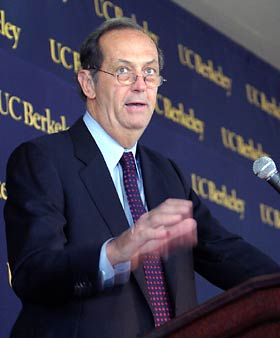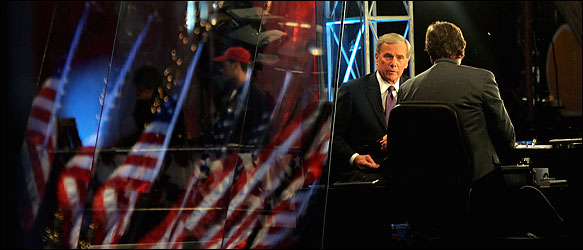I think you're building it up for Braun, personally.
meaning you think she'll win or..?
I think you're building it up for Braun, personally.





























AUG. 30 - SEPT. 2 2004: THE REPUBLICAN CONVENTION

Rick Santorum walked on stage to thunderous applause. The delegates were ecstatic and it took eight minutes before the Vice President could speak. In that time he said at least 50 "thank yous". When the applause dimmed Rick Santorum began, "My fellow patriots: my name is Rick Santorum..." immediately he was cut off by another round of applause as the delegates blew air horns, stomped their feet, and clapped until their hands were red. The enthusiasm over a candidate who had never sought the office he was given was shocking and puzzled numerous talking heads. Soon enough it became clear that Santorum's unwavering conservatism and strong leadership were the reasons for such a warm welcome. His speech was somewhat short, lasting 41 minutes, but was interrupted over 75 times for applause -- taking an hour to give. The speech outlined Santorum's ability to attract the base, but also positioned him as viable in the general election. Taking numerous digs at Hillary Clinton and her "lack of experience", Santorum brought the House down. "I may not have lived in the White House for eight years, but I'll sure as hell keep family values in the White House and so will Liddy!" The crowd loved that line more than any other it what was an obvious assault on Bill Clinton's affair. Furthermore Santorum criticized Bradley and Clinton for their senate records and called them "cowards" when America needed leadership. The speech was very well-received by Republicans and Independents.

Delegates soon returned to their rooms as the country remained in awe at the clear unity stemming from the Republican party. Santorum's speech had electrified the delegates and expectations were high for President Dole who would be speaking in roughly 24 hours.









